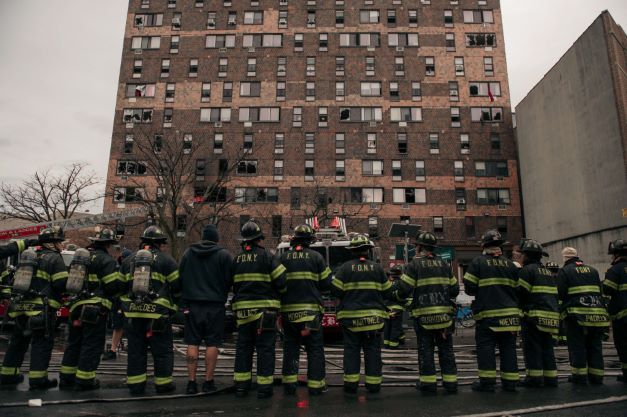Created at the Comédie de Béthune, where Alexandra Badea is associate artist, the diagonal of the void is the last part of the triptych she started in 2018 with Thiaroye, followed by which of Seine in 2019, in a set named Points of no return (published by L’Arche) which questions the missing accounts of colonization and postcolonization and the recovery of massacres or deportations through the lie of the State. Thiaroye explored the killing of Senegalese riflemen on December 1, 1944, organized by French colonial officers, presented as a mutiny and killed for nearly seventy years, before its discovery by historians. In which of Seine , it evokes an improbable love story between an Algerian and a Frenchwoman, daughter of black feet, who will flee to Paris and be struck by the massacre of October 17, 1961, of which it was not until the 1990s to measure the impact. abomination.
A feeling of loss of identity
In this new opus, she returns to the story of the “children of the Creuse”, torn from their families in Reunion in order to repopulate the French departments bled by the rural exodus. From 1962 to 1984, more than two thousand children had thus been displaced under the authority of Michel Debré, then deputy for Reunion. Many of them found themselves in appalling orphanages, joined by children of North African immigrants, workers or minors facing the violent precariousness of industrial closures. But if Alexandra Badea, of Romanian origin, is passionate about history and deepens the convulsions, she does not do documentary theater. The director seeks to reveal through fiction the places where in human beings “The intimate has been destroyed by the political”. She echoes this point of destruction in her characters, through the recurring figure of Nora – Sophie Verbeeck – a young director who questions, films, questions and articulates the stories.
In the diagonal of the void, it brings together three orphans battered by life in the home where her own father had been welcomed thirty years earlier. She comes up against the repressed anger of the protagonists and the violence that she unleashes by bringing them back to painful memories. We find all the actors – Madalina Constantin, Amine Adjina, Kader Lassina Touré – on the three pieces, with Stéphane Facco in Thiaroye, and to which joined, here, the Reunionese actress Véronique Sacri, bringing her share of truth to this construction which plays on the cutting edge of emotions. If the feeling of loss of identity and uprooting gives rhythm to the triptych, there are, in this story, so contemporary, broken siblings, young people who have sunk into extreme depression or put an end to their lives, very acute.
The project was supported by the Théâtre de la Colline, in Paris, which is reprogramming the three plays in January which can be seen separately or in full. For the occasion, Alexandra Badea has recreated Thiaroye and reworked the entire score in a fluid staging and scenography that orchestrates the movement of each of the parts of the trilogy. Spaces, with sound and video, which are both cages and landscapes, dream and reality, intimate and collective.
–

/cloudfront-eu-central-1.images.arcpublishing.com/prisa/4ZDQ2DVLBZARBDAMJQYYOX2UBY.jpg)
